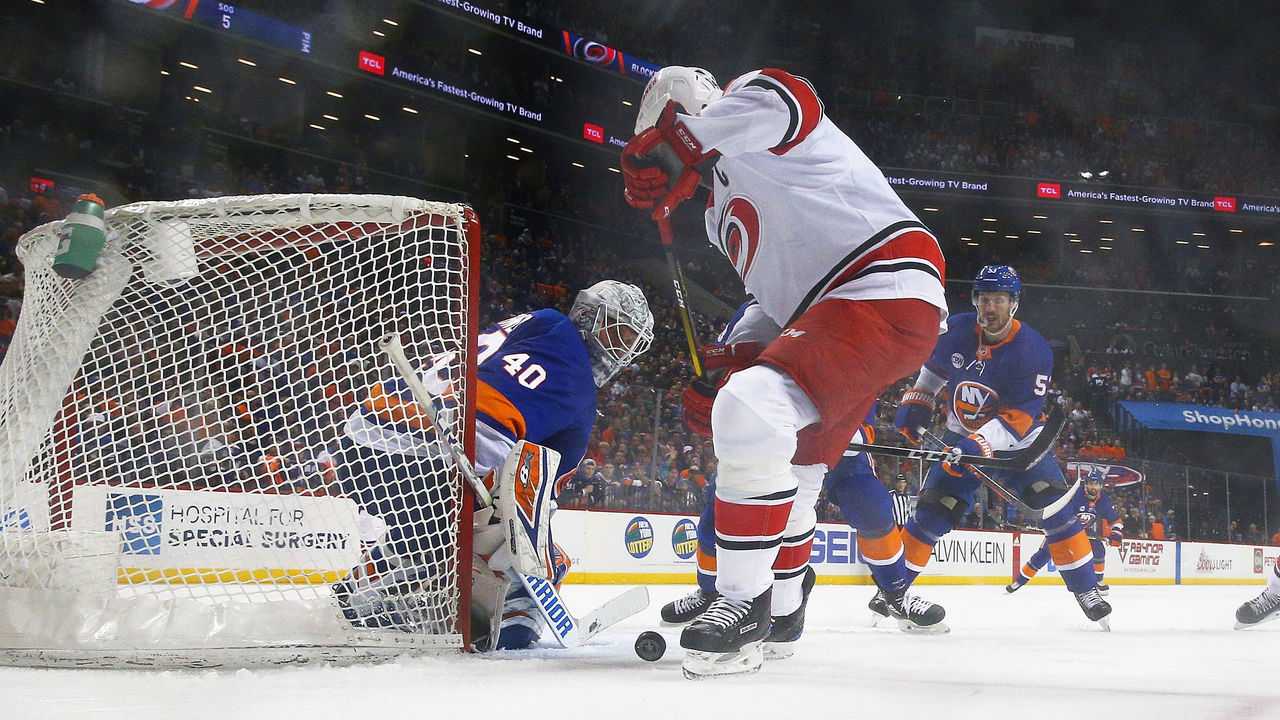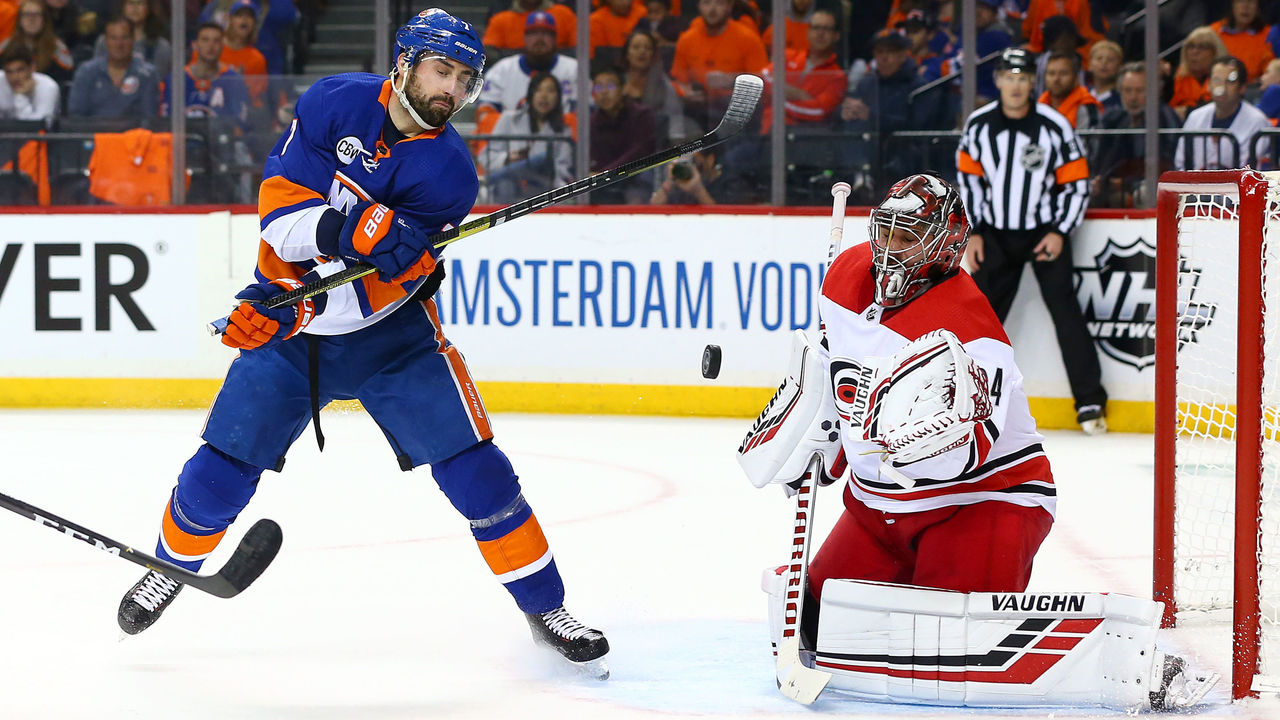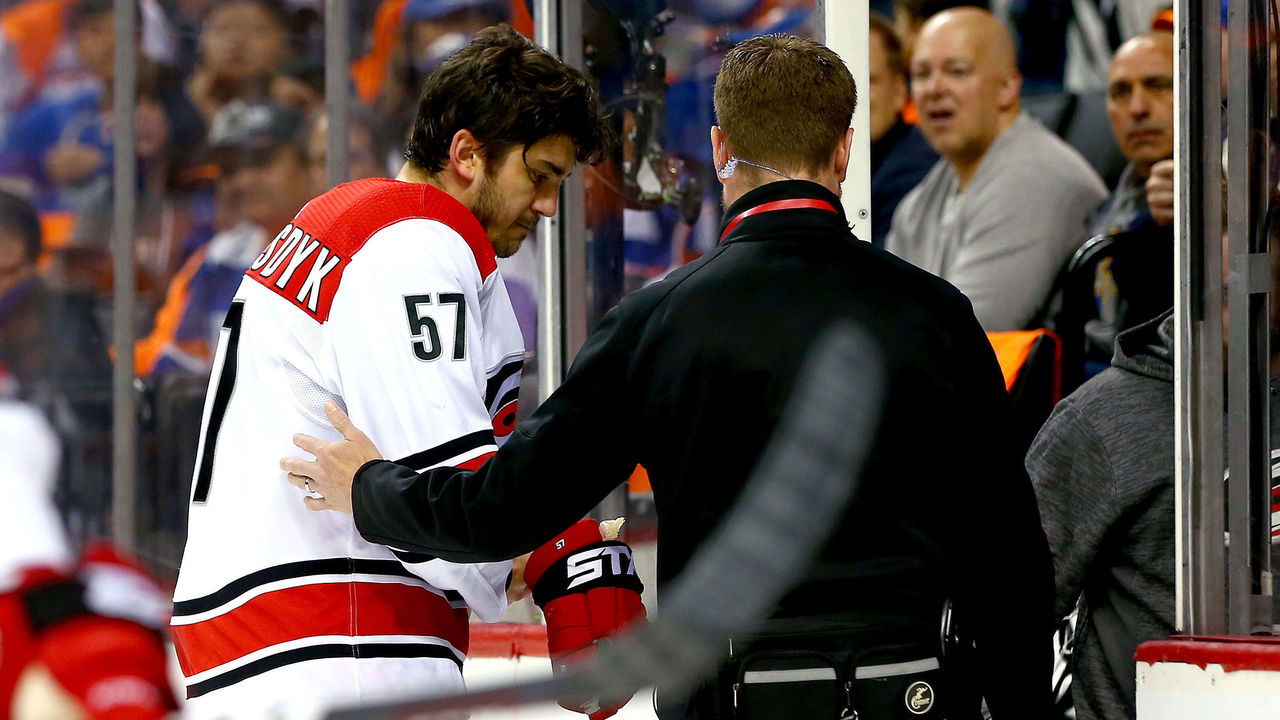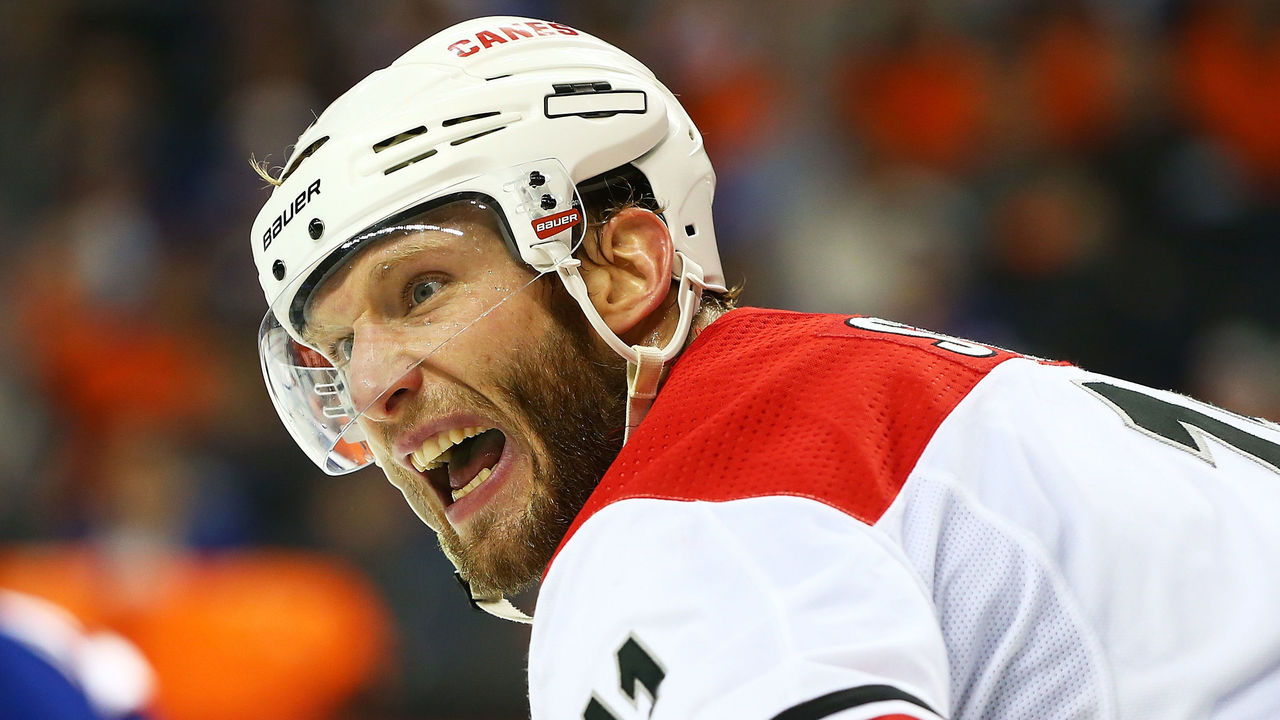As Isles' offense disappears, resilient Hurricanes continue to beat the odds
At this stage of the playoffs, the Carolina Hurricanes have all the reasons in the world to fret about their chances of progressing past the second round.
Already down three of their top nine forwards due to injury, the 'Canes lost three more players - including starting goalie Petr Mrazek - to assorted ailments in Game 2; Mrazek's counterpart, New York Islanders starter Robin Lehner, has turned aside 47 of the 50 shots he's faced through two games; Carolina's power play, now 0-for-7 in the series, scarcely looks capable of generating a scoring opportunity, much less a goal.
And yet the Storm Surge is alive and well as this Eastern Conference semifinal shifts to Raleigh for Game 3 and 4. The Hurricanes have carved out a reputation for themselves as the postseason's most resilient team, and have taken a 2-0 series lead by the thinnest of margins due to the Islanders' inability to produce at even strength.
Resilience ranks among the best explanations of how the Hurricanes managed to win 2-1 Sunday after their offense barely tested Lehner through 40 minutes. Any of the Isles' 13 high-danger scoring chances at even strength (Carolina had five) could have knotted the series. Instead, they'll hit the road with no margin of error remaining.

Here are three takeaways from Game 2 that will set the tone for the remainder of the series.
Islanders need to score - for Lehner, more than anyone else
Lehner's Game 2 stat line was nothing special - 16 saves on 18 shots - but New York's Vezina Trophy finalist has kept his squad in each of their past two losses with a sparkling .940 overall save percentage. Sunday marked the first game since the Islanders' playoff opener against the Pittsburgh Penguins that Lehner allowed more than one goal.
His effort should be enough for any NHL lineup to succeed, even one that scored fewer goals than every playoff team but the Dallas Stars this season. But a litany of missed chances (along with a disallowed goal) kept New York off the scoreboard at five-on-five for the second straight game.
Though the posts and crossbars Josh Bailey, Jordan Eberle, and Ryan Pulock struck at various points in the final 10 minutes were particularly painful, the Isles' inability to finish plagued them from puck drop. Driving toward an open net five minutes in, Anthony Beauvillier whiffed on a tap-in; on the two-on-one rush that directly preceded Mrazek's exit with a lower-body injury, Eberle and Casey Cizikas were unable to connect for a shot.

Meanwhile, the Hurricanes have capitalized on key opportunities. In Game 1, Jordan Staal scored in overtime by beating Isles defenseman Devon Toews to a rebound off a shot that missed the net. On one of the Hurricanes' few open-ice rushes Sunday, Warren Foegele collected a banked pass from Lucas Wallmark and wired a wrister past Lehner for Carolina's first goal. Less than a minute later, Nino Niederreiter tipped in the game-winner.
The Islanders are probably due for better luck in the next couple of games, but at this point, time is of the essence.
Injuries haven't caught up with Carolina … yet
After going down 2-0 to the Washington Capitals in the first round, the Hurricanes have now won six of their past seven games despite injuries to forwards Andrei Svechnikov, Micheal Ferland, Jordan Martinook, Saku Maenalanen (who left in the third period with a hand injury and will be sidelined 10-to-14 days), goaltender Mrazek, and defenseman Trevor van Riemsdyk (who hurt his shoulder 25 seconds into Game 2 and is out indefinitely).
If Svechnikov (concussion) and Martinook (leg) return soon, it would be a boon to Carolina's offense, which has operated on a by-committee basis through nine playoff games. Seven 'Canes have scored multiple goals, led by Foegele's five, while defenseman Jaccob Slavin has a team-high 10 assists.

Can they withstand these latest blows? One argument in the Hurricanes' favor is the way they've responded to adversity. Carolina dug itself out of a two-game deficit and overcame a 6-0 loss in Round 1. Before Niederreiter scored on Sunday, the Hurricanes hadn't led for any amount of time since Game 6 against the Caps, aside from their overtime goals.
As for the Mrazek injury, Carolina might not be that much worse off with Curtis McElhinney in net. To be fair, that isn't a ringing endorsement of McElhinney, but an acknowledgment that their stats from this season were similarly mediocre (.914 save percentage in 40 games for Mrazek; .912 in 33 games for McElhinney). Mrazek posted a 31-save shutout against the Isles in Game 1, but his .899 save percentage against Washington was poor.
Hurricanes' power play looks broken
Ranked 20th in the NHL, Carolina's power play was pretty drab this year. But they could sure use more in this stage of the playoffs, especially on an afternoon when their offense looked lifeless for extended stretches.

The Hurricanes' time on the man advantage actually did them more harm than good in Game 2. They went 0-for-3 and didn't put a single puck on net during a five-on-three that lasted 1:25 in the second period. The tail end of that particular power play produced the odd-man rush where Cizikas could've scored and Mrazek appeared to hurt himself.
Foegele and Niederreiter finally solved Lehner at five-on-five in the third period, but the Hurricanes certainly didn't make it easy on themselves. (Nor have they for most of the playoffs: Game 3 vs. Washington was the last time they scored on the power play.)
The gap between now and Game 3 on Wednesday will be the first time the Hurricanes have consecutive days off in nearly two weeks. Rest won't be the only order of business they attend to.
Nick Faris is a features writer at theScore.
HEADLINES
- Team USA still finding its footing despite starting Olympics with 2 wins
- USA holds off Denmark to win nervy round-robin clash
- Watch: Denmark scores from center ice on USA's Swayman
- Slovakia takes Group B after late goal in loss to Sweden, Finland's win
- Report: Fiala to have season-ending surgery after Olympic injury